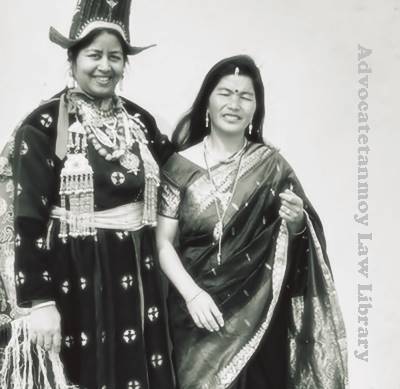Origin of the Word ‘HinduHindu A geographical name given by non-Hindus, who came to visit Bharatvarsha (Hindusthan). Sanatan Dharma is the actual Dharmic tradition of the Hindus. People who live in Hindusthan are Hindu, whether they Follow Islam, Chris, Buddha, Mahavira, or Nanaka. In this way, Tribals are also Hindu.’
The word was used in ancient times and several cases can be mentioned below :
The Hamdan, Persepolis, and Naqsh-I-Rustam inscriptions of Persian monarch Darius mention a people ‘Hidu’ as included in his empire. These inscriptions are dated between 520-485 B.C.
It is even claimed that the Asokan inscription (3rd-century B.C.), repeatedly uses expressions like ‘Hida’ for ‘IndiaIndia Bharat Varsha (Jambu Dvipa) is the name of this land mass. The people of this land are Sanatan Dharmin and they always defeated invaders. Indra (10000 yrs) was the oldest deified King of this land. Manu's jurisprudence enlitened this land. Vedas have been the civilizational literature of this land. Guiding principles of this land are : सत्यं वद । धर्मं चर । स्वाध्यायान्मा प्रमदः । Read more’ and ‘Hida loka’ for ‘Indian nationNation A collective consciousness, founded in ancient origin within a geographic area, with definite history and heritage, culture and way of life, language and literature, food and clothing, coupled with a deep understanding of war and peace is to be known as a nation. Rasra is the Vedic word for it.’ (Junagadh, separate rock edict II).
In Persepolis Pahlavi’s inscription of Shahpur II (310 A.D.), the King has the title, “Shakanshah Hind Shakastan u Tuxaristan Dabiran Dabir”, i.e.; “King of Shakastan, minister of ministers of Hind Shakastan and Tukharistan”.
In the Avesta (dated between 5000 -1000 B.C.), Hapta Hindu is used for SanskritSanskrit It is the oldest living language and civilizational mark. The language of Rig Veda or Atharva Veda (10000 years old) is a pre-Sanskrit Vedic language. It has its own Pratisakhya (Grammar) and Nirukta (Vocabulary). 40% of Tamil is Sanskrit. Before the written form, it was in the form of oral tradition. Such is the case of Six Kanda Ramayana. Before Valmiki, it was in Oral form. Sanskrit has been the language of Jambudvipa. The mother tongue of Sunok, Vasistha, Viswamitra or grandparents of Zarathustra (Resource person of Abrahamic Religions) was the language of Rig Veda. The legend goes that the origin of Sanskrit is the sky, therefore, it is called Deva Bhasa. “Sapta Sindhu”.
The term ‘Indoi’ was used in Greek literature by Hekataeus (late 6th century B.C.) and Herodotus (early 5th century B.C.).
The Hebrew Bible uses ‘Hodu’ for India, which is a Judaic form of ‘Hindu’. The Hebrew Bible (Old Testament) is dated earlier than 300 B.C. Even today Hebrew spoken in Israel uses Hodu for India.
The Chinese used the term ‘Hien-tu’ for ‘Hindu’ at about 00 B.C. while describing the movement of Sai-Wang. Later Chinese travelers Fa-Hien (5th century A.D.) and Huen-Tsang (7th century A.D.) used a slightly modified term ‘Yint’ but the affinity to the term ‘Hindu’ was still retained.
Sair-ul-Okull (available in Turkish Library Makhtab-eSultania in Istambul), an anthology of pre-Islamic Arabic poetry contains poetry written by Omar-bin-e-Hassham praising Mahdeva and referring to India as ‘Hind’ and Indians as ‘Hindu’.
Another poem in the same anthology by Labi-bin-eAkhtab-bin-e- Turfa dated around 1700 RC. also refers to India as ‘Hind’ and Indians as ‘Hindu’ mentioning four Vedas. The poem is also inscribed on columns of Lakshamin Narayan Mandir (also known as Birla Mandir) in New Delhi.
Sanskrit works like Meru Tantra and Brihaspati Agam (4th to 6th century A.D.) mentiond the term ‘Hindu’
Pahoja, MH; Antiquity and Origin of the tenn ‘Hindu’; The Hindu Renaissance; Vo. 5, No.2; April 2007; Pp 18-19
Read also:
Hinduism and Hindutva: What the Supreme Court says? By Jagmohan (08/01/1996)

More Stories
Matua Philosophy of Harichand-Guruchand Thakur (মতুয়াবাদ)
Eating Habit of Lord Rama: Meat (मांस) eating in Valmiki Ramayana
A Letter by Mahishya Samiti (Kaivartta) to the Governor of Bengal (02/11/1900)